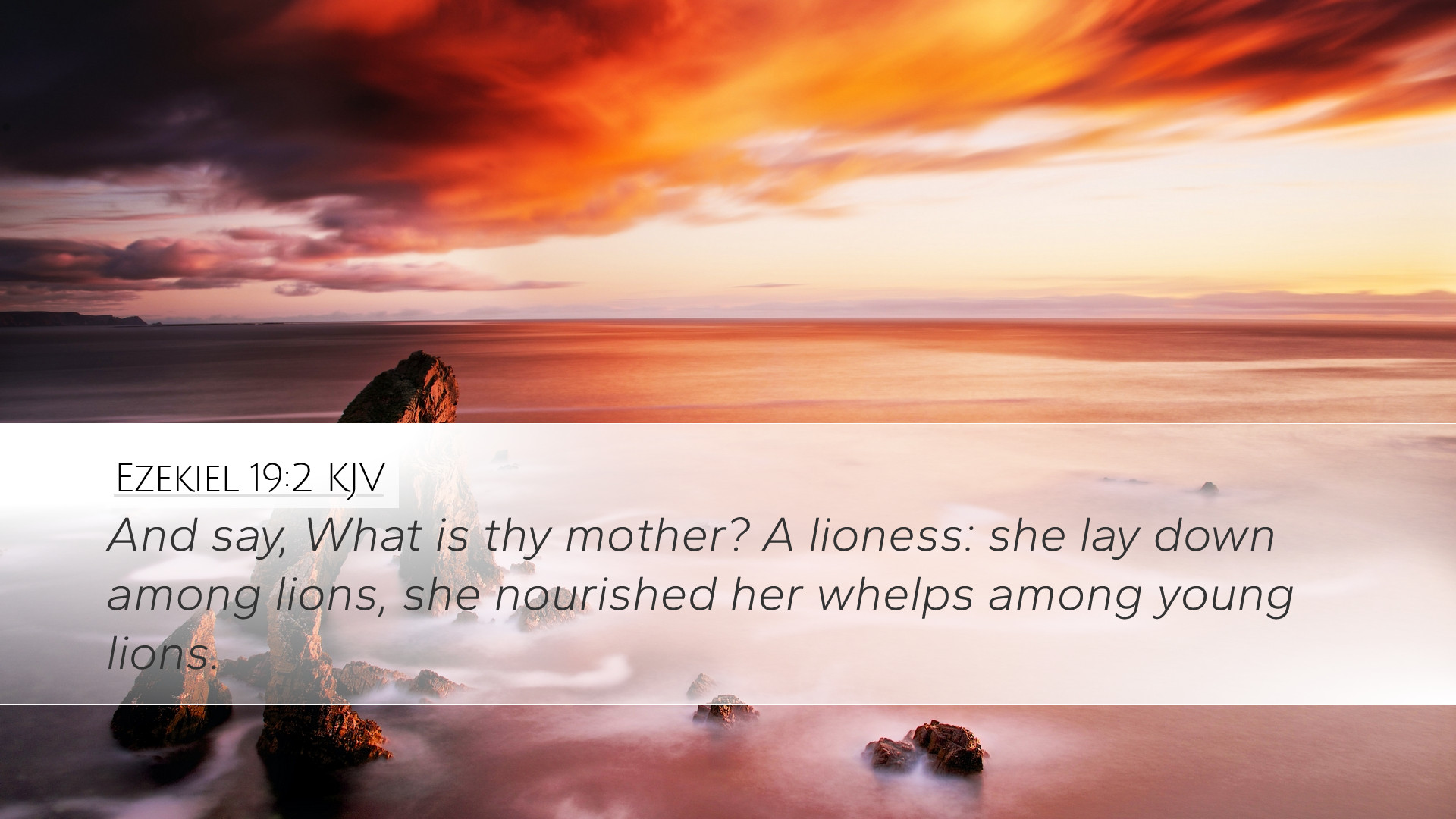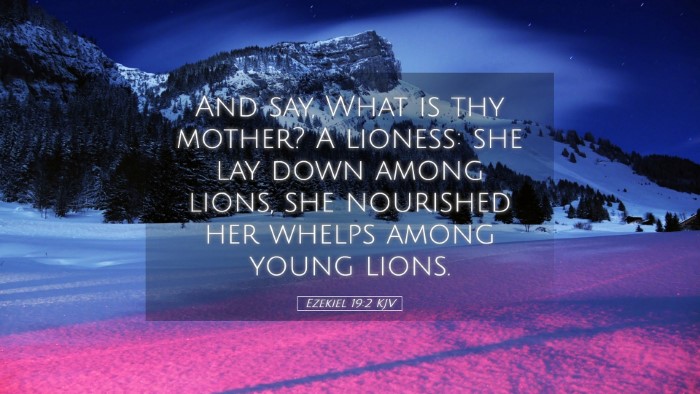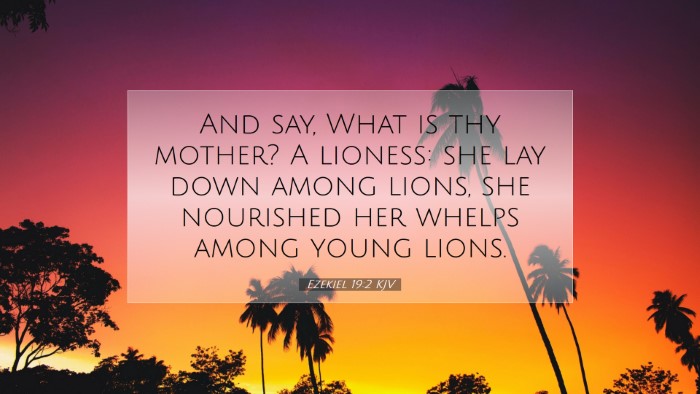Ezekiel 19:2 Commentary
Verse: "And say, What is your mother? A lioness: she lay down among lions, she nourished her whelps among young lions."
Overview
This verse is part of a lamentation over the royal family of Judah, symbolically represented through the imagery of a lioness and her cubs. It serves to illustrate the strength and nobility that once characterized the lineage of David, but which has now diminished due to sin and rebellion against God.
Contextual Analysis
The context of Ezekiel's prophecy is crucial for understanding this verse. Ezekiel was a prophet during the Babylonian exile, and his messages often contained both warnings and reflections upon Israel's fate due to their turning away from God. Here, the 'lioness' represents the mother, possibly Jerusalem or the Davidic line, while ‘whelps’ signify the kings of Judah.
Commentary Insights
Matthew Henry’s Commentary
According to Henry, the lioness symbolizes the fierce and protective nature of Judah, which once ruled with strength and dignity. He emphasizes that the imagery of the lioness and her cubs illustrates the nurturing role that the kingdom had over its leaders. The cubs, representing the kings of Judah, were raised to expect reverence and to wield power, yet they had strayed into weakness and vanity. Henry reflects on how this lament points to both the pride of the kingdom and its eventual demise.
Albert Barnes’ Notes
Barnes adds layers to this imagery by interpreting the lioness as referring not just to strength, but to the role of leadership and motherly care. He emphasizes that the cubs, though born into greatness, encountered adversities that ultimately led them astray. This underscores the theme of lost potential and the consequences of disobedience to God’s commandments, portraying a stark warning to current leaders and nations. His commentary suggests that the message remains relevant for contemporary times and ecclesiastical governance.
Adam Clarke’s Commentary
Clarke provides a historical perspective, linking the lioness to the tribe of Judah, which was known for its ferocity and might, as prophesied in Genesis. He suggests that the passage conveys not just the unfulfilled promise of potential kings but also a reflection on the failures that led to the fall of the monarchy in Judah. Clarke elaborates on the nurturing aspect, indicating that the cubs were provided with all they needed to succeed, yet their waywardness led to devastation. He encourages readers to reflect on the responsibilities of leadership and the impact on the generations that follow.
Theological Implications
The verse serves as a theological reminder of God’s covenant with David and the consequences of straying from righteousness. The lioness signifies divine empowerment, while the whelps signify the legacy and responsibility passed down through generations. This depiction raises profound questions about leadership, responsibility, and judgment.
Lessons for Application
- Leadership Responsibility: Leaders must understand the weight of their actions and the influence they have over those they lead.
- Divine Judgment: The passage illustrates the seriousness with which God regards the sovereignty and moral duty of His chosen people.
- Potential and Pitfalls: There is a need to nurture the potential God has placed in leaders, guarding against the pitfalls of complacency and disobedience.
- Covenant Faithfulness: The imagery of the lioness and her cubs should remind believers of the importance of remaining faithful to God and His commands, lest they also face judgment.
Conclusion
Ezekiel 19:2 offers profound insights into leadership, legacy, and divine judgment. The imagery evokes a deep reflection on the significance of faithfulness to God, the nurturing role of leadership, and the inevitable consequences of rebellion. Pastors and scholars alike can find both comfort and challenge in the poignant metaphor of the lioness and her cubs, prompting earnest inquiry into our journey of faith and obedience in God’s kingdom.


